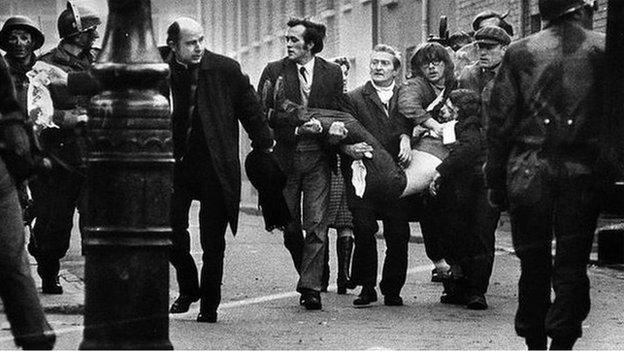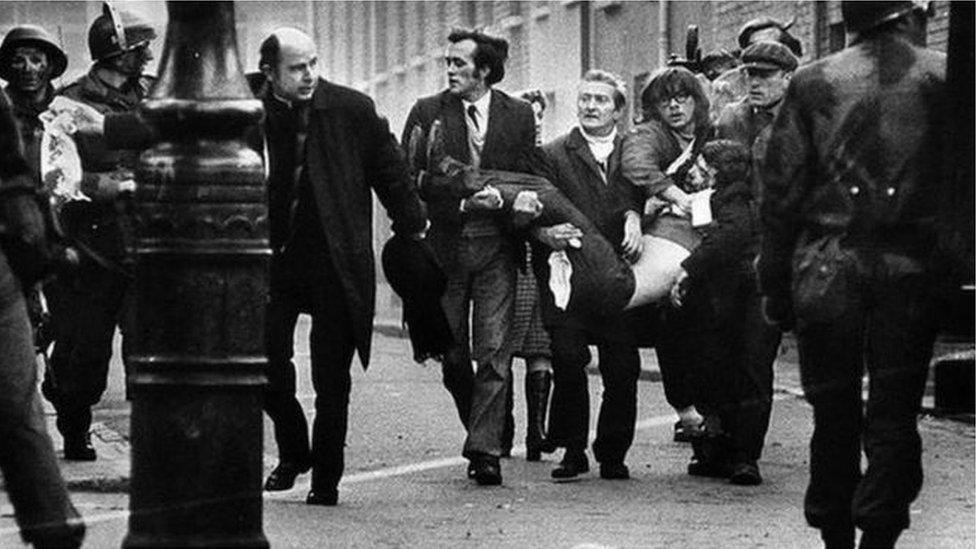Bloody Sunday: Ex-paratroops' legal bid 'extraordinary'
- Published

Thirteen people were killed on Bloody Sunday in January 1972
A case taken by ex-soldiers who face questioning over Bloody Sunday has been called "one of the most extraordinary in the annals of common law".
The seven former paratroops have asked the High Court to stop them being arrested and brought to Northern Ireland.
A lawyer for one of the paratroops told the court the challenge revolved around where they would be interviewed.
Lord Chief Justice Lord Thomas said it was a "wholly exceptional case".
A 66-year-old arrested in Antrim earlier this month was the first man to be detained in the investigation.
Thirteen people were shot dead on 30 January 1972 in Londonderry when paratroops opened fire on crowds.
Fifteen others were wounded.
'Considerable interest'
The lawyer said the former Parachute Regiment members had no issue with being interviewed and would co-operate.
He was speaking at the first public hearing of the judicial review action brought at the High Court in London by the former soldiers against the chief constable of the Police Service of Northern Ireland (PSNI).
The issue at the heart of their application was that the men should not be arrested and interviewed in Northern Ireland, he said.
A lawyer for the chief constable of the Police Service of Northern Ireland told the court "that criminal investigations are unpleasant and unwelcome to those caught up in them but are necessary for the rule of law".
The case was described by the lord chief justice as being of "considerable interest" to the public.
Earlier this month, the PSNI made its first arrest over the Bloody Sunday killings, questioning a former member of the Parachute Regiment.
The ex-soldier was arrested in County Antrim and interviewed at a police station in Belfast before being released on bail the following day.
The legal action being considered by the three judges was lodged with the High Court after their former colleague was arrested.
Bloody Sunday was one of the most controversial days in Northern Ireland's history.
The fatal shootings, were the subject of a 12-year public inquiry led by Lord Saville.
The Saville Report, published in 2010, unequivocally blamed the army for the civilian deaths and exonerated those who were killed.
Prime Minister David Cameron accepted the findings of the report and made a public apology to the victims.
Clarification 9 April 2019: This article was amended to remove a reference to the death of John Johnston. This reflects the Bloody Sunday Inquiry's finding about Mr Johnston's death several months after he was wounded in Derry on 30 January 1972. The inquiry report states that his death was "not the result of any of the wounds he sustained on Bloody Sunday".
- Published18 November 2015

- Published16 November 2015

- Published11 November 2015
